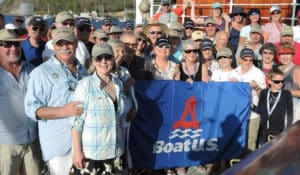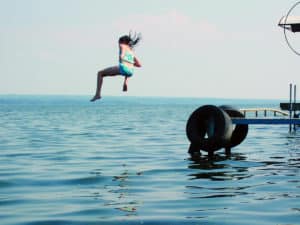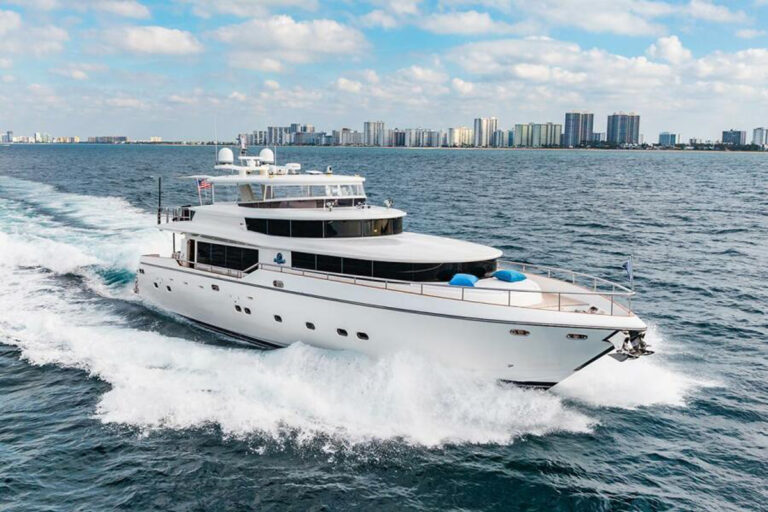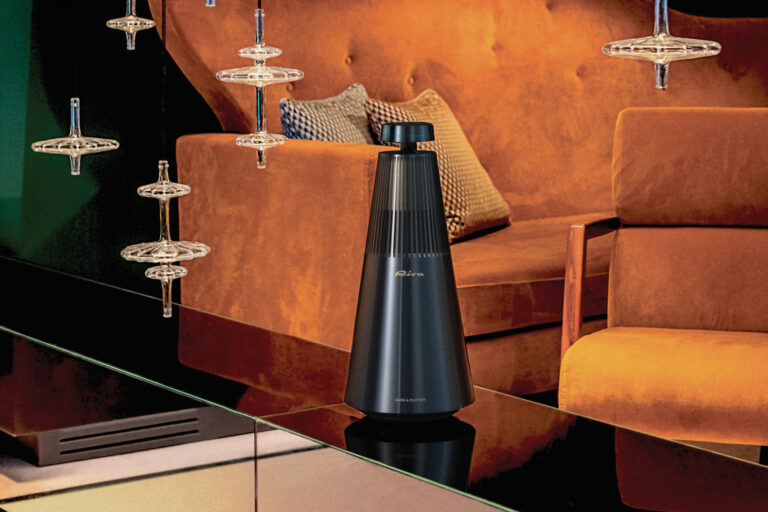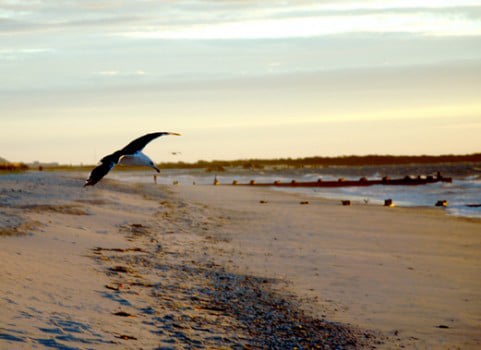
Migration
Cruising yachtsmen, many of whom are “empty-nesters,” migrate like the birds, southbound in fall, northward in spring. Quite a few prefer to navigate the Intracoastal Waterway rather than brave open water. Many species of birds also like to stay inshore, preferring not to fly over ocean. Yachts lay over at Cape May to wait for weather, and so do more than 400 species of birds.
Cape May is the tip of a peninsula on the southbound flyway. Funneled down to the cape, migrating species hesitate here. Instead of continuing over the water to Delaware, they stop for a rest. Species bunch up and mingle. The same holds true for the southern tip of the Delmarva Peninsula and similar land formations on the path south.
Using clickers, researchers have reported counting as many a million seabirds passing through Cape May, but the highlight of the fall season is the hawk migration. Cape May is reputed to be THE best place in the world to observe birds of prey—50,000 hawks from 15 species pass through here each year. “I’ve witnessed flights of more than 50 Peregrine Falcons in a little over an hour. Most of the Peregrines that pass Cape May are coming from the arctic and are going to Central and South America,” says Paul Kerlinger, former director of the Cape May Bird Observatory.
The birds and their watchers benefit from the fact that Cape May State Park occupies the strategic southern tip of the Jersey shore. The park has an elevated hawk watch platform to accommodate visitors, and there are volunteers from the observatory to help make identifications. There is also a signboard where sighting statistics from the current year and previous years are posted.
Naturally, bird watchers from the entire world flock to Cape May to bear witness, and the city is home to several birding authors besides Kerlinger, who once calculated how many dollars birding contributed to Cape May’s prosperous economy. Despite the popular image of the birdwatcher as “an eccentric elderly lady wearing binoculars, sensible shoes, and a funny hat,” studies actually show that, as a group, birders are both affluent and highly intelligent.
Indeed, following birds seems like a clever way to visit nice places. As Alexander Wilson, the father of American ornithology, joked 200 years ago, “If birds are good judges of excellent climate, Cape May has the finest climate in the United States, for it has the greatest variety of birds.” www.birdcapemay.org

